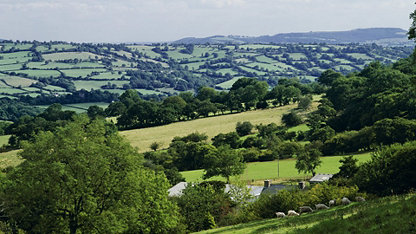This report investigates the widely-discussed claim that title registration is prerequisite for valuing unregistered land. This is the first time that informal land markets in Indonesia, Ghana and Peru have been studied in this way and this research and its findings should help provide a wealth of background information to anyone working or who has an interest in this sector.
The study is particularly important because governments, the valuation industry and professional bodies need to ensure they are informed about, and equipped to respond to, future scenarios for the expansion of these informal land markets.
The research both builds on previous work in this important sector (RICS Research 2011 – Valuation of unregistered land – Kenya, RICS Research 2016 – An evaluation of valuation practice in sub Saharan Africa – case study Ghana) and helps provide an evidence base for current initiatives such as the International Land Measurement Standard (ILMS), UN Habitat GLTN ‘Valuation of unregistered land guide’, UN FAO ‘Valuing land tenure rights’ and for future initiatives such as the development of ‘environmental/ecosystem valuation’ standards and International Valuation Standards (IVS).
Research approach
In addressing the research problem, empirical research was carried out in Ghana, Indonesia, and Peru – all countries where the issue of unregistered land is recurrently debated. Registered valuers, officers of the land sector agencies responsible for registration and valuation, and academics who specialise in valuation were interviewed alongside architects, anthropologists and urban planners who work with occupants of unregistered land. The research focused on:
- identifying the nature of the system of land use and ownership in these countries
- understanding how valuation is practiced and how valuers estimate value for unregistered land
Key findings
Valuing unregistered land highlights important strengths but also challenges to valuation practice. The study finds that valuers have shown industry and innovation in adapting valuation methods and in this sense, local valuation practices have been quite resilient. However, there are also challenges specific to the valuation of unregistered land. Undervaluation is a major challenge, as is overvaluation in some instances. Overall, most of the conflicts associated with compensation for the exprorpriation of unregistered lands arise from the top-down nature of the valuation process, a narrow view of ‘value’ as limited to only legally created structures, and an overly strong reliance on asocial valuation techniques for establishing value.
The study concludes that challenges to valuation could be better addressed by determining the highest and best current use of the property or the opportunity cost of current use in a process that entails systematic investigation, including interviewing a range of willing and able market participants and other stakeholders to arrive at values that are more reasonable to stakeholders and the courts. Valuation – whether for registered or unregistered land – can be more useful as a social practice.
Published date: 08 May 2018
Our latest research
Providing information to stimulate debate and promote leading-edge thinking.
Contribute to market surveys
We rely on input from our professionals. Take part in our leading market indicators














